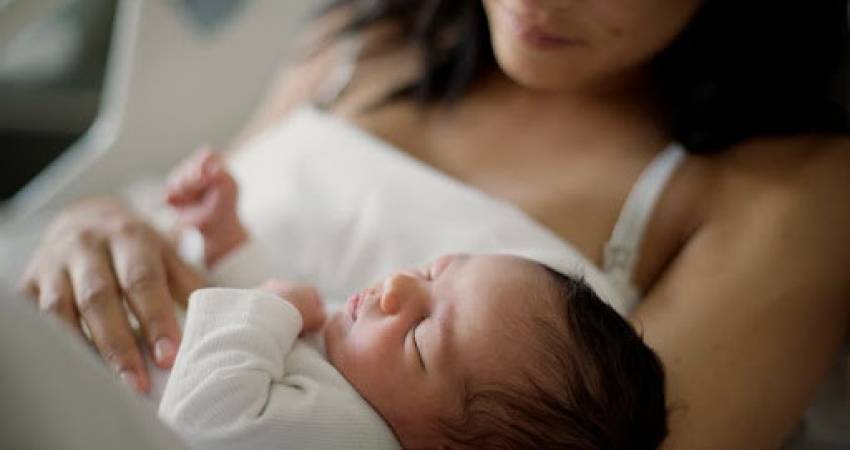
“Heavily biased” consultation on introducing abortion without limits in Jersey
Jersey’s Minister for Health and Social Services is in the process of reviewing a consultation that critics say is “heavily biased” regarding the laws surrounding abortion on the island.
The review involves asking the question on whether or not abortion, for any reason up to birth, should be made legal, and questions if sex-selective abortion should be permitted, if abortion should be allowed on the grounds that a woman is pregnant with twins or triplets, and whether to remove all abortion time limits in the case of the baby being diagnosed with a disability.
Abortion laws in Jersey currently allow for abortion up to 12 weeks under the circumstances that a mother’s pregnancy “causes her distress” (over 97% of abortions happen under this ground which in practice allows for guaranteed abortion on demand up to 12 weeks gestation), up to 24 weeks if the baby is likely to be “seriously handicapped” and can abortion can be accessed at any point in pregnancy if it is deemed life-threatening to the mother.
The consultation will proceed until the 31st of October and asks for the input of the Islanders on the radical view that all abortion laws should be completely decriminalised and asks whether or not the major decision to remove all time limits for abortion should be adopted.
Section 3 of the consultation states that under the current Jersey law, because a person supposedly would not know the sex of the child at 12 weeks gestation, there is no restriction on sex-selective abortion. However, this is not entirely true.
The NHS states that a form of prenatal testing called NIPT (non-invasive prenatal testing) is a highly accurate method used to detect the sex of an unborn baby and is available from 10 weeks gestation. Private providers even offer NIPT to determine the sex of the unborn baby from as early as 6 weeks of pregnancy.
The survey recognises that “international consensus cites the end of 22nd week as the ‘cut–off’ for viability of life” but suggests the abortion limit should not be reduced despite this. It claims that “few severely premature babies survive without permanent disability”, therefore 24 weeks is, according to the survey, more of a rational time limit.

Jersey is an island country and self-governing British Crown Dependency near the coast of north-west France.
_ _ _ _ _ _ _ _ _ _ _ _ _ _
What the consultation fails to bring attention to is the fact that the British Association of Perinatal Medicine released a study in 2019 that states that two thirds of babies born at 22 weeks gestation survive and three quarters of surviving babies born at 23 weeks will go on to live without “severe impairment”.
The consultation is extremely biased in the way that it predominantly cites radical pro-abortion bodies in support of abortion legislations that would make abortion legal with no limits up until birth and claims that a 12-week limit can be “problematic” as some women may not be aware of a pregnancy at this early stage. This is, however, entirely ignoring the fact that the average time limit for abortion in the EU is 12 weeks, that 70% of women in the UK are in favour of a reduction of the abortion time limit and that a mere 1% actually support the idea of abortion being made legal up until birth.
The consultation does not lay out any of the arguments against their implementation of buffer zones. There is a distinct lack of reference to the many concerns that have been voiced about the controversial buffer zones and how they have the potential to completely restrict peaceful freedom of expression such as silent prayer or assistance to those who are in a crisis pregnancy. These ‘buffer zones’
The consultation’s section on clinically unsupervised abortions (‘DIY’ abortions) and whether or not they should be allowed to take place once again does not properly outline the likely and proven risks of at-home abortion ‘pills by post’. These pills are incredibly dangerous and have led to a series of emergency calls and many women being admitted to hospital.
This consultation is an example of the kind of disappointing bias that we are faced with on a regular basis. The rules and regulations, or lack thereof, proposed in this consultation are not actually helpful to women or their babies. It is once again missing many important and entirely valid arguments from the perspective of those who are pro-life, therefore failing to give everyone involved a say in the discussion.
Featured
- Govt don’t oppose Coppinger abortion bill at 1st stage
- March for Life: Vance, the White House, and a Divided Pro-Life Movement
- Paris’ Annual March for Life Puts Euthanasia in the Spotlight
- Britain’s seemingly limitless abortion rate
- The importance of the work carried out by Every Life Counts
- Puerto Rico officially recognizes unborn children as ‘natural persons’
- Assisted suicide laws stalled by “complex” legal issues
- Yes, that hideous celebration of 300 abortions is real
- White Crosses Memorial: Dungarvan once again pays its respects to our aborted babies
- Precious Life welcomes strong stand by Scottish Bishops against 'draconian' Buffer Zones law
- 12 Wonders of Christmas a huge Success
- Campaign to stop EU funding out of state abortions - tell your EU commissioner to vote NO
- Josiah: Abortion Survivor
- Loving the Unborn
- Rally for Life 2025
- Don't assist Suicide 2024


























